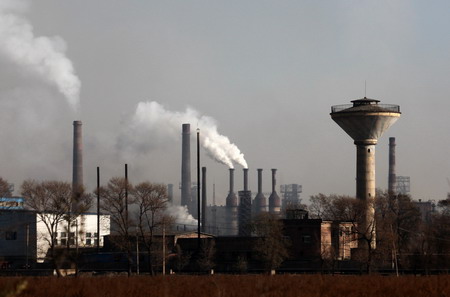Focus
Rare earth's surging price
By Gao Changxin (China Daily)
Updated: 2010-11-17 07:59
 |
Large Medium Small |
|
|
The environment pays a heavy toll amid boom in demand for China's precious metals in the global market. Gao Changxin reports from Inner Mongolia.
In a rundown suburban bungalow, Liu Yongqing and two employees with mud-splattered faces pour hot acid, ore and other chemicals into a couple of meter-tall machines.
From outside, this inconspicuous workshop looks like a roadside restaurant, although the standard fare here is rare earth, a group of 17 elements used in many high-tech sectors to make things like wind turbines, hybrid cars, missiles and mobile phones.
Working conditions inside are miserable - hot and humid with a smell strong enough to make most people faint - but Liu is in a good mood as the price of his products has almost doubled this year.
"We are working overtime now," said the co-owner of Weiming Rare Earth in Baotou, the Inner Mongolia autonomous region's "capital of rare earth".
"We plan to buy more equipment and employ more workers to catch up with orders," he said.
The price of rare earth skyrocketed this year to 20,000 yuan ($3,000) a ton, up from 8,500 yuan in 2008, following the government's decision to significantly trim its export quotas.
Liu refused to say how much money his company makes every month or the price of his products, revealing only that business is good "because we sell cheaper than the big companies".
Pointing at a rusted refining machine, the co-owner said that in his business, technology and skill are not important. "What is important is that you have access to rare earth mines and stable buyers," he added.
Weiming Rare Earth's boom days could soon come to an end, though, as the company is a prime target for Baotou government's latest crackdown on the unqualified mines and refineries that have plagued its rare earth industry for years.
Police have detained eight people involved in six illegal rare earth mining operations since August, while authorities have invested more than 6 million yuan in setting up patrols and electric fences around its mines.
The moves are the part of fresh efforts to consolidate the rare earth industry, which would ensure the rich resources receive a reasonable price and rein in the worsening pollution.
